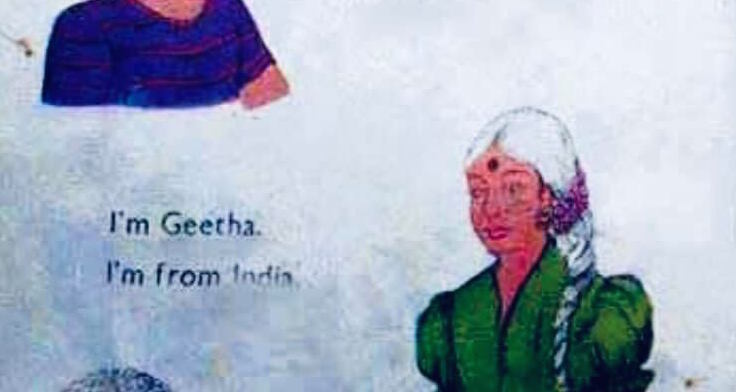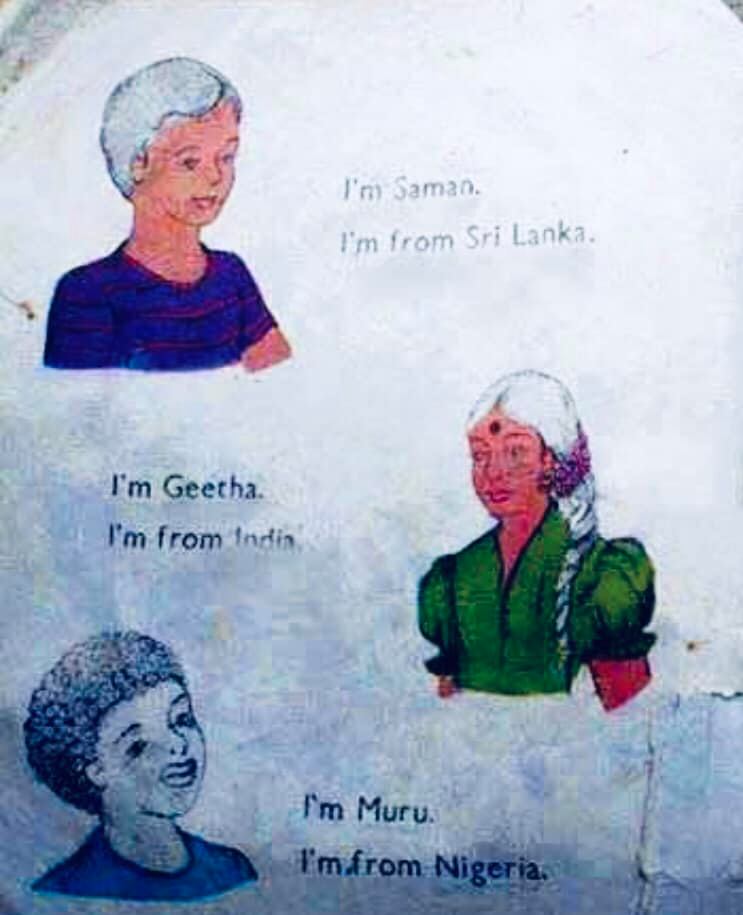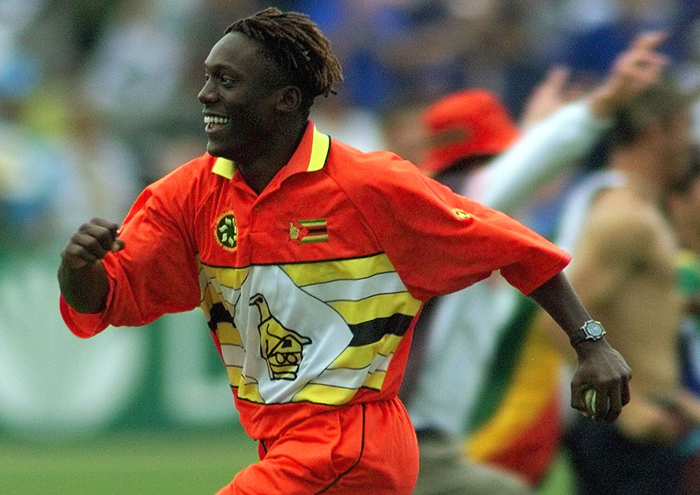
Muru from Nigeria was not treated with respect by the Jaffna kids, who had been raised with colonial ideals of beauty. He was often picked on for his skin colour and for his afro-textured hair. The Jaffna kids would body shame their friends comparing them to Muru’s skin colour and his hair. Because having black skin was seen as a shame among many in the community.
 A page from the english book taught to Jaffna kids
A page from the english book taught to Jaffna kids Zimbabwean cricketer, Henry Olonga
Zimbabwean cricketer, Henry OlongaWe may, on a regular basis, leave room for racism to grow within our own households. When was the last time someone you know referred to a black person as “Karuval/Karuppi?” A Chinese person as “Sappadai?” Surely, other races may have terms to call their counterparts, so this is not limited to the Tamil community.
We all are boiling with rage over the death of Geroge Floyd, but we are also without or with our knowledge contributing to the growth of racism. When are we going to change?In fact, there is outright discrimination even within a race. Take casteism among Tamils for example. It’s deeply rooted in people's beliefs. It’s a huge issue in the Tamil community, but not often spoken about out loud.
Unless we are open to real change, racism and discrimination in all its forms will continue to live in our society, and we may hide it within ourselves, and continue to be politically correct about it in public.

























